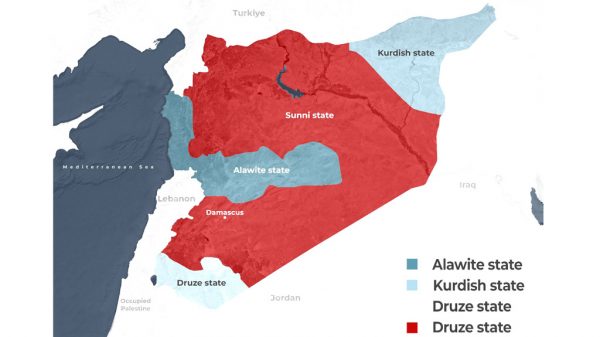S Alam takes Tk 3,287cr in power capacity charge

Shawdesh Desk:
The coal-based 1,224MW Banshkhali power station, owned by the controversial S Alam group, realised up to more than double the amount received by its peers in capacity charge payment in the 2023–24 financial year, revealed data obtained from the Bangladesh Power Development Board.
The coal-fired power plants compared here include the 1,600MW Adani power station, 1,320MW Rampal power station, 1,320MW Payra power plant, and 370MW Barishal power station.
The capacity charge received by the Banshkhali power plant, energy experts pointed out, shines the spotlight on the typical Bangladesh power scenario— power deals coupled with mismanagement earning private investors predatory profits.
Capacity charge represents the amount of money payable under power deals by the government irrespective of electricity generated, ensuring private investors maximum return on their investment.
The Banshkhali power station generated 240.29 crore units of electricity last year and received Tk 3,287.86 crore in capacity charge, receiving Tk 13.68 while producing a unit of electricity.
The Payra and Barishal power plants, on the other hand, received Tk 5.69 and Tk 5.99 respectively for producing a unit of electricity during the same time, revealed BPDB data.
The Payra power plant received Tk 4,292 crore in capacity charge and generated 754.87 crore units of power.
The Barishal power plant was paid Tk 477.52 crore in capacity charge and produced 79.74 crore units of electricity.
The Rampal power plant received Tk 7.96 in capacity charge per unit of electricity. It was paid Tk 2,236.92 crore in capacity charge and produced 281.15 crore units of electricity.
The controversial Indian business group Adani received Tk 6.6 in capacity charge per unit of electricity produced. The power plant set up in Jharkhand received Tk 5,392.3 crore in capacity charge and produced 816.66 crore units of electricity.
The large amount of capacity charges indicates that significant parts of the power plants’ capacity remained unused last year.
The time the power plants remained out of operation, however, was not always due to the country’s inability to take power from them.
There were times when the power plants remained out of operations because of technical glitches and the failure to manage fuel.
Except for the Payra power plant, the other power stations manage their own coal. The Bangladesh government has a long-term supply deal with Indonesia for procuring coal for the Payra power plant.
‘It is apparent the power plants were paid capacity charge anyway, indicating loopholes in the power deals,’ said Hasan Mehedi, member secretary, Bangladesh Working Group on Ecology and Development.
Bangladesh’s power deals did not follow a pattern and varied case-to-case as they were achieved through one-to-one negotiation bypassing the standard bidding procedure.
The past Awami League government, toppled now by a student-led mass movement, carried out power projects under an indemnity law over the last one and a half decade.
The Banshkhali power plant was used less than 21 per cent of its capacity, according to the BPDB. The Adani power plant was used 60 per cent of its capacity.
‘One of the reasons behind the poor use of Banshkhali power plant was the delay in installing the transmission network needed to evacuate power from the plant,’ said a BPDB official seeking anonymity.
Delays in building transmission networks turning power plants to economic burden are nothing new. A unit of the 660MW power plant remained unused for over a year in the absence of adequate transmission network.
Last year, Banshkhali produced the costliest coal power spending Tk 20.53 for generating a unit of power, followed by Tk 16.11 spent by Rampal power station, Tk 15.14 spent by Adani, Tk 13.16 spent by Barishal power plant and Tk 11.87 spent by Payra power station.
The Banshkhali power plant, which came into operation with its both units between September and October last year, frequently grabbed headlines when the past government intervened in its favour sending police to use lethal force, killing at least 11 people.
Located in Chattogram district, the power plant faced strong opposition from the local people since the very beginning as it affected thousands of families and many villages.
The plant was set up without having a proper environmental impact assessment.
The government also waived the stamp duty of about Tk 3,170 crore on land lease agreement and financing documents for the SS Power 1 Limited under the Private Sector Power Generation Policy.
The interim government has employed a committee of experts for evaluating power deals signed under the indemnity law during the autocratic regime of Sheikh Hasina.
Bangladesh’s current installed power capacity is 27,791MW but the country struggles to constantly generate 13,000MW.
Only six coal-based power plants realised Tk 15,686.6 crore in capacity charge in the last fiscal.
In September last year, the past Awami League government revealed that Tk 1.04 lakh crore was spent in paying capacity charge in the 14 years since the government assumed power in 2009.























Leave a Reply